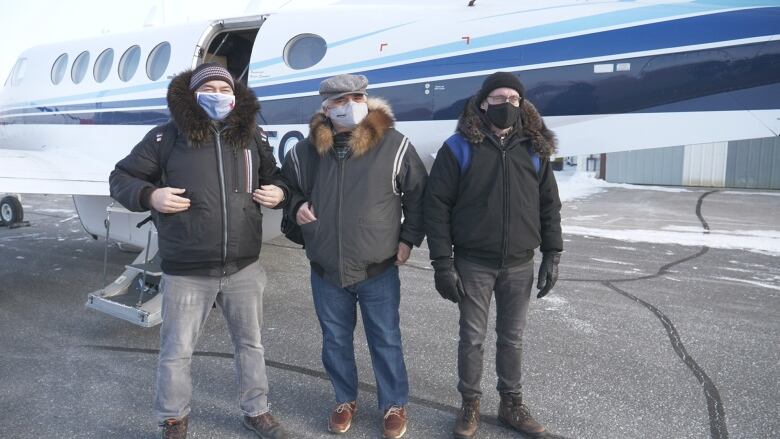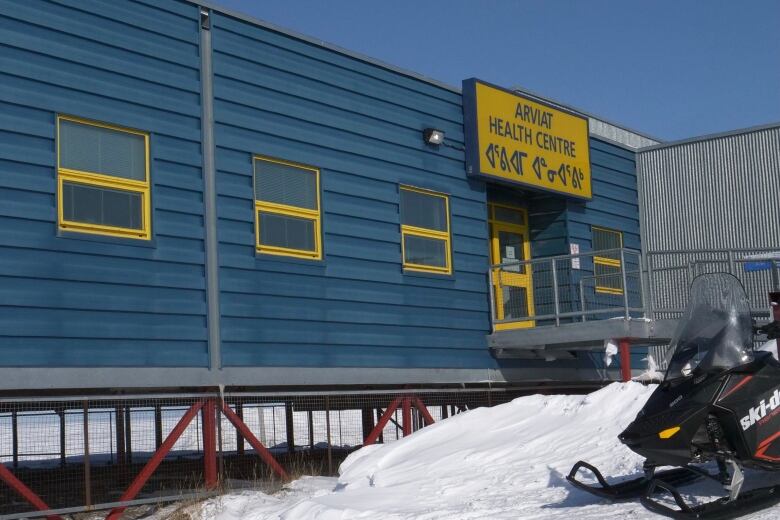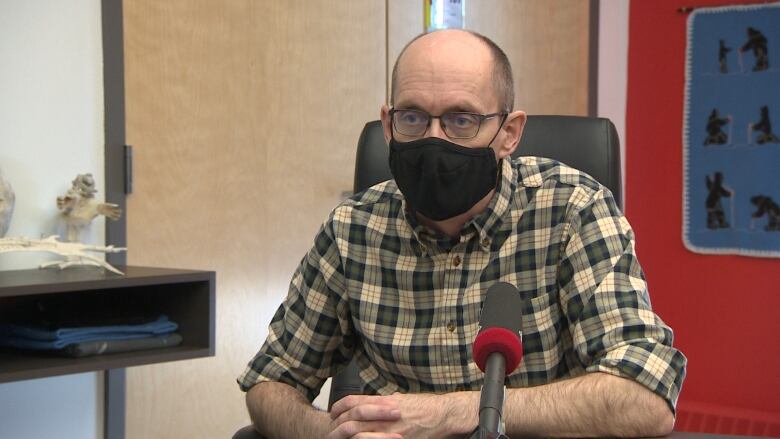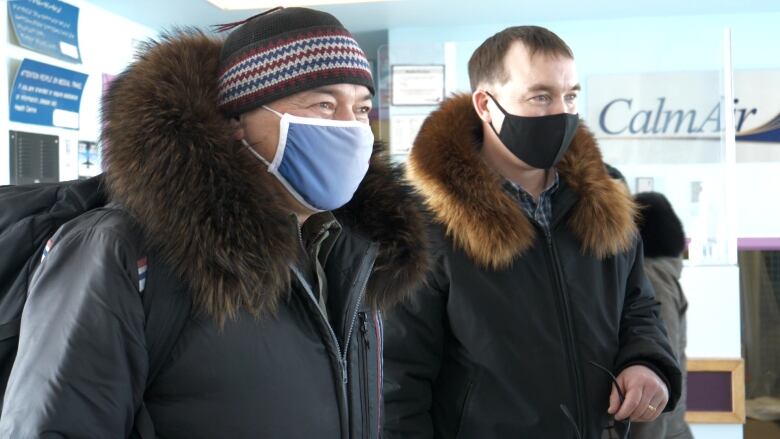Nunavut officials mark COVID-free 'milestone' with trip to Arviat
Nunavuts premier, chief public health officer and Health minister were on the day trip

Two days after travel restrictions were eased in Arviat, Nunavut officials took a day trip to the community to thank Arviatmiut for their dedication to beating COVID-19.
Travel in and out of the community does not require special permission from the office of the chief public health officer, as of Monday this week.
Arviat has been without known cases of COVID-19 since March 20 and the last people in isolation in the community are finished on Saturday.
Premier Joe Savikataaq,Chief Public Health Officer Michael Patterson and Minister of Health Lorne Kusugak made the trip to combat some of the stigma the community has been facing as Nunavut's epicentre of the virus and to slowly ease Arviatmiut into emerging from their long lockdown.
"It's been more than a week, even if [someone] were diagnosed today, there's very little risk of forward transmission or spread within the community," Patterson said.
Part of what makes it low risk is the vaccination uptake in the community, Patterson said.
"We have to recognize that the vaccine is a game changer. The impact of COVID-19 in Arviat is much different today than it was in November because so many people have been vaccinated."

Ronnie Beltran,the nurse in charge at the community's health centre, saysthey continue to vaccinate Arviatmiut on Saturdays when the clinic is usually a bit emptier and therefore easier to distance in.
Every Saturday since the community's second vaccine clinic, Beltran says, they've vaccinated about 20 or 30 people.
The most challenging part of the pandemic was managing the workload with so few staff, Beltransaid. At times there were only two or three nurses there, whereas with the extra help the centre sometimes had up to six nurses.
Four-hour visit
CBC was on the charter plane with the group that left Iqaluit early Tuesday morning and spent just over four hours in the community.
The visit began with a trip to the hamlet office and a hop over to the local radio station, which has been instrumental in keeping Arviatmiut informed and occupied during the pandemic.
The Arviapaluk radio station organized a call-in show for residents to ask questions of the guests.
Patterson said more restrictions will be eased in the community over the next few weeks.
"Because there's been ups and downs and we're not back to normal, and we know that we can't get back to normal," Patterson said.
"I think it's important to celebrate the successes andrecognize the hard work that people have already been throughbecause it is a milestone."

The group visited each of the three schools in Arviat, as well as the local stores, to thank everyone for working hard to adapt to the public health measures.
The Principal at John Arnalukjuak High School says coming out of lockdown will be another thing to adapt to.
"We just have to support each other and let everybody know it's OK to be in school and to be around people again and that's been our biggest factor is trying to deal with that," Peters said.
"Everybody just wants to go home because that is where we have been for the last 100 days, so it's been completely different and it's surreal for everyone."

Father and son take on pandemic planning
For Savikataaq it was the first time he was back in his home community since early in October 2020. He'll be staying in Arviat for another two weeks to catch up with his son, the mayor of the community, Joe Savikataaq Jr., and the rest of his family.
The two haven't seen each other since then, but the premier saysthey talk on the phone every day. He says he's proud of his son and acknowledged how hard it was to be away from his home while Arviat was struggling.
"I'm so proud of my dad and all that he faced during the criticism and the ups and downs. He kept me going through the tough times. I'm just thankful to see my Dad," said Savikataaq Jr.
For Patterson, who's in regular contact with both, he said their relationship never affected medical or operational decisions the two were involved in.
"They've always kept it professional. If I had not been told that they were father and son, I would not have figured it out, maybe by their last name," Patterson said.
"In a work setting they refer to each other as the mayor or his worship, and Joe Junior refers to his father as the premier when we're talking work-related stuff."
Written by Sara Frizzell, based off interviews by Pauline Pemik.












_(720p).jpg)


 OFFICIAL HD MUSIC VIDEO.jpg)
.jpg)



























































































